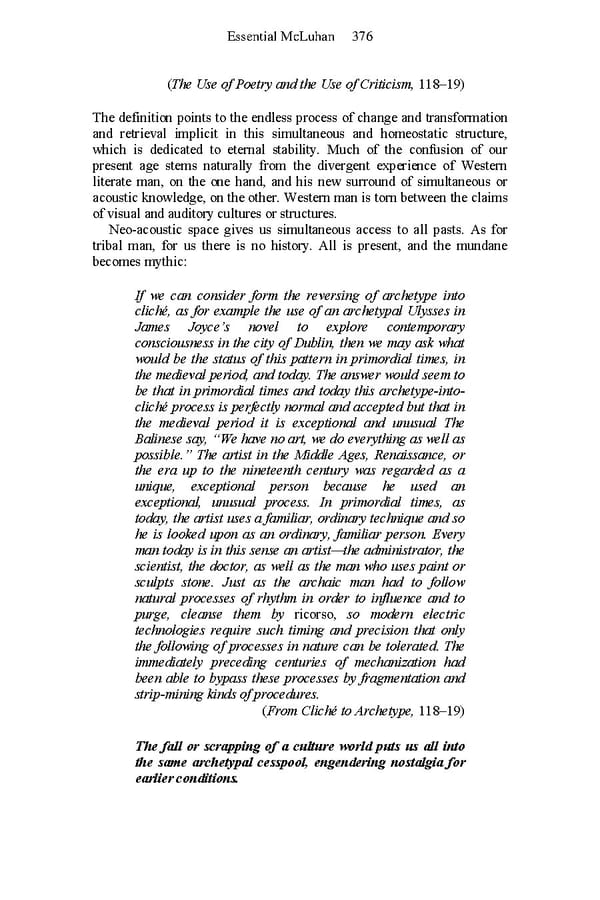Essential McLuhan 376 (The Use of Poetry and the Use of Criticism, 118–19) The definition points to the endless process of change and transformation and retrieval implicit in this simultaneous and homeostatic structure, which is dedicated to eternal stability. Much of the confusion of our present age stems naturally from the divergent experience of Western literate man, on the one hand, and his new surround of simultaneous or acoustic knowledge, on the other. Western man is torn between the claims of visual and auditory cultures or structures. Neo-acoustic space gives us simultaneous access to all pasts. As for tribal man, for us there is no history. All is present, and the mundane becomes mythic: If we can consider form the reversing of archetype into cliché, as for example the use of an archetypal Ulysses in James Joyce’s novel to explore contemporary consciousness in the city of Dublin, then we may ask what would be the status of this pattern in primordial times, in the medieval period, and today. The answer would seem to be that in primordial times and today this archetype-into- cliché process is perfectly normal and accepted but that in the medieval period it is exceptional and unusual The Balinese say, “We have no art, we do everything as well as possible.” The artist in the Middle Ages, Renaissance, or the era up to the nineteenth century was regarded as a unique, exceptional person because he used an exceptional, unusual process. In primordial times, as today, the artist uses a familiar, ordinary technique and so he is looked upon as an ordinary, familiar person. Every man today is in this sense an artist—the administrator, the scientist, the doctor, as well as the man who uses paint or sculpts stone. Just as the archaic man had to follow natural processes of rhythm in order to influence and to purge, cleanse them by ricorso, so modern electric technologies require such timing and precision that only the following of processes in nature can be tolerated. The immediately preceding centuries of mechanization had been able to bypass these processes by fragmentation and strip-mining kinds of procedures. (From Cliché to Archetype, 118–19) The fall or scrapping of a culture world puts us all into the same archetypal cesspool, engendering nostalgia for earlier conditions.
 Essential McLuhan Page 382 Page 384
Essential McLuhan Page 382 Page 384